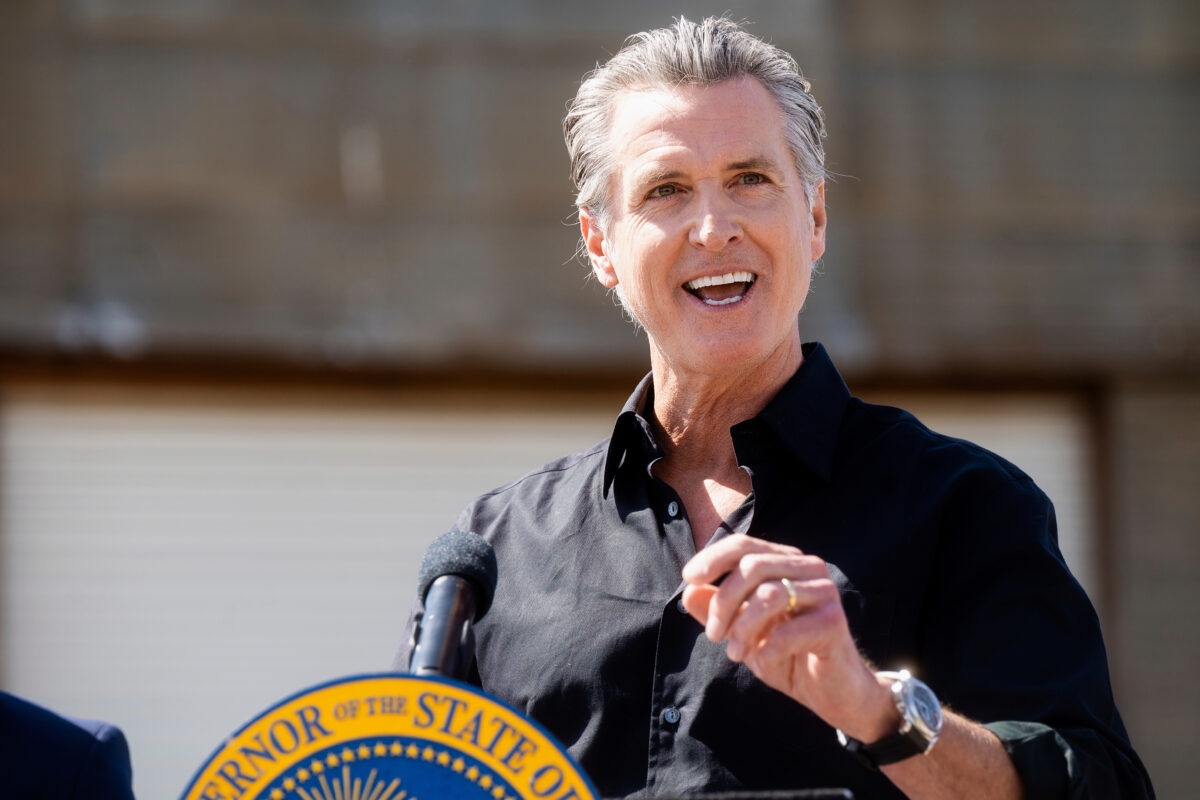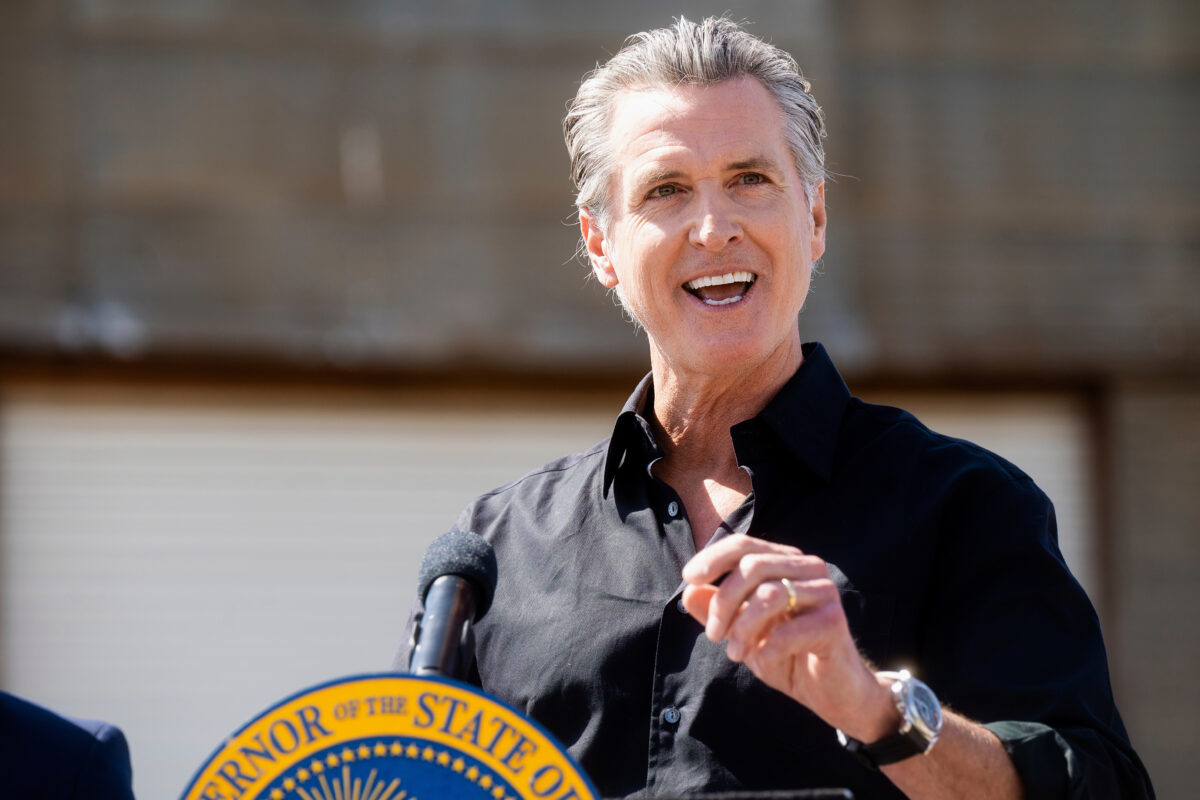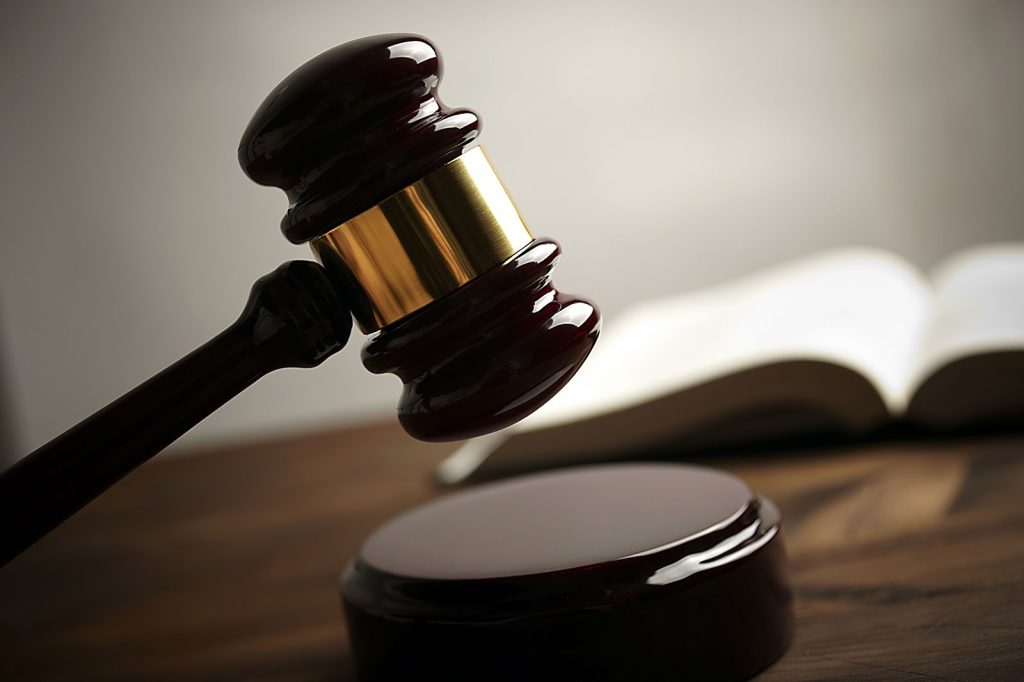

AP Photo/Noah Berger
California Gov. Gavin Newsom filed a motion for a temporary restraining order Tuesday afternoon, seeking to block Secretary of Defense Pete Hegseth and the Department of Defense from deploying military troops in Los Angeles to respond to immigration protests.
The motion comes one day after the State of California filed a lawsuit in federal court Monday on the same issue, a 22-page complaint that denounced the actions by President Donald Trump and his administration as an “unprecedented power grab” and described our democracy as being founded on the principle, enshrined in the Constitution, that “our people are governed by civil, not military, rule.” The complaint was filed against Trump, Hegseth, and the DOD.
The lawsuit cites Newsom’s legal status as the commander-in-chief of the California National Guard, and argues that Trump “bypassed him by invoking 10 U.S. Code § 12406, a rarely used statute that requires a ‘rebellion or danger of a rebellion against the authority of the Government of the United States,’” reported Adam Klasfeldeditor-in-chief of All Rise News (and former managing editor of Law&Crime):
By contrast, the lawsuit notes, the Los Angeles protests against Trump’s immigration policies have been “peaceful, non-violent, and legally compliant,” despite some “exceptions.”
“At no point in the past three days has there been a rebellion or an insurrection,” the lawsuit says. “Nor have these protests risen to the level of protests or riots that Los Angeles and other major cities have seen at points in the past, including in recent years.”
Newsom made clear early on that he found National Guard deployment unnecessary, but Trump went ahead anyway, even though the statute he invoked reads: “Orders for these purposes shall be issued through the governors of the States.”
The complaint sought to have the judge declare Trump’s order unconstitutional under the Administrative Procedure Act and the Tenth Amendment to the U.S. Constitution.
The 20-page motion filed Tuesday additionally sought more immediate relief, asking for a temporary restraining order to block the Trump administration’s efforts to “militarize the protest response,” reported Klasfeld.
“In the United States, the police—and not the military—enforce the law,” the motion stated. “This bedrock principle flows from the Founding, finds expression in Acts of Congress, and lives at the core of our civil society. Ours is a Nation of laws, enforced through even-handed justice, and not ruled by military decree.”
The motion went on to call the actions by Trump and Hegseth were “unlawful” and urged the court “to help [California] keep the peace in Los Angeles and enter a temporary restraining order that prevents federal troops from enforcing the laws in a civilian city, arguing:
Plaintiffs seek to preserve (in part) the status quo by temporarily enjoining Defendants from ordering or deploying the active-duty members of the military and federalized National Guard soldiers to patrol communities or otherwise engage in general law enforcement activities beyond the immediate vicinity of federal buildings or other federal real property. As outlined above, Defendants’ use of the military and the federalized National Guard deprives the State of vital resources, escalates tensions and promotes (rather than quells) civil unrest. By contrast, the public interest is served if the Court enjoins Defendants from further militarizing California’s communities to allow State and local law enforcement to fulfill their duties to enforce State law. Moreover, a preliminary injunction will not harm Defendants: the Department of Homeland Security can continue to enforce immigration law and the DOD Defendants will merely be ordered to comply with the PCA and statutes governing the federalization of the National Guard.
The Trump administration objected to California’s motion, as expected, and asked for one day to submit a brief in response.
Shortly thereafter, Judge Charles R. Breyer with the U.S. District Court for the Northern District of California issued his ruling, declining to rule on California’s motion for a temporary restraining order that day and granting the defendants’ request for one day to respond.
In the one-page orderBreyer established a briefing schedule, with the Trump administration response due at 11 am PT on Wednesday, June 11, California’s response to that due at 9:00 am PT on Thursday, June 12, and then a hearing set for 1:30 pm ET on Thursday as well.
Breyer is the younger brother of former Supreme Court Justice Stephen Breyer. Both Breyers were appointed to their spots on the federal bench by President Bill Clinton.



